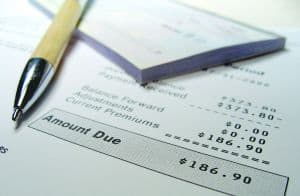What is Investment Income? Helping You Understand Your Profit
Our financially savvy readers often inquire about the finer points of investment income as it relates to taxation. What is investment income, and, how can you best understand your passive income and the requisite taxes? We conducted a thorough review of investing information and tax law to address these concerns.
What Is Investment Income?
Investment income, or passive income, is profit you create by selling stocks or bonds, garnering dividends from stocks, selling a rental property, or passively accruing capital from a business you have invested in. Basically, investment income is money you make that is not a part of the wages or salary you work for nor a part of tax-exempt retirement fund such as an IRA or a 401(k).
The different types of investment income can seem confusing on their face, especially in reference to American tax law, but, when taken in digestible segments, the basic tenets of each individual source of investment income are relatively simple.
The Different Types of Investment Income
Investment income can take many forms, each of which is subject to slightly different tax laws which are best understood on a case-by-case basis. Below you will find a brief description of what is investment income and a note on the procedure by which each is assessed in reference to the relevant tax laws. We must note that our description of tax law is based on federal law in the United States. Different states, municipalities, and countries may have their own tax laws for investment income.
What Is Investment Income Through Capital Gains?
Capital gains occur whenever you sell a financial asset, like a stock or a bond, at a price beyond what you originally paid for it. Any asset you hold for less than a year before deciding to sell yields a short-term capital gain, which is taxed at the same rate as income from wages or a salary. Long-term capital gains are from assets you have held for more than a year. These capital gains are taxed at a more favorable rate; the exact figure depends on your tax bracket.
Tax law is structured to encourage long-term investment because the more the population is vested in the market, the more capital there is for investment firms to use to fuel growth. For the individual, it is important to remember that, unless you stand to make a hefty sum from a short-term investment, it is advantageous to let your stocks grow for at least a year.
What Is Investment Income Through Dividend Income?
Some companies choose to pay their investors a portion of the profits the company makes every year on a quarterly or monthly basis. These payments are called dividends. Dividend income is common among investors who hold shares in large companies that make a lot of money every year but don’t expect their market share to grow by leaps and bounds. This is true of companies like Apple, Microsoft, and Texas Instruments.
Taxes on your dividend income depend on whether or not your dividends are so-called “qualified dividends,” which are a part of a tax-deferred or tax-exempt retirement account—like an IRA or a 401(k). Dividends in this category are taxed at a more favorable rate, which differs depending on the particulars of the investment vehicle. Dividends that you receive from assets not included in an IRS-approved retirement account are taxed according to your marginal tax rate, or the same rate you pay on your salary or wages.
What Is Investment Income Through Interest Income?
Interest income is money you make based on the balance you have in a savings account at your financial institution. If you have $10,000 in a savings account, the money doesn’t sit still; your bank uses it to fund loans to other banks or individuals. The profit the bank makes on these loans allows the bank to pay you interest on the money you keep in that savings account, thereby allowing you to make interest income. The more you have in a savings account, the more you will make in interest income.
Much the same as dividend income, almost all interest income is taxable at your marginal tax rate just like your income from employment. The possible exceptions to this policy are interest income on some tax-exempt municipal bonds or investment capital within the purview of a qualified retirement account.
What Is Investment Income Through Rental Income?
Rental income is any amount of profit you make from renting a piece of property you own to another individual or business. Most often, property owners earn rental income by renting their homes to long-term tenants or, in other markets, to vacationers on a short-term basis. Rental income of this variety is taxed according to your marginal tax rate; however, property owners are often eligible for generous deductions and protections from losses based on how they operate their rental businesses.
Because property owners must either employ a property manager or take on those responsibilities themselves, there are many onerous obligations involved with owning and running a rental business that the IRS allow property owners to deduct from their total tax burden.
Additionally, regardless of whether you rent out your property without actively taking part in the day-to-day operations or you run your rental property as a full-time job, you are protected, at least to some extent, from losses incurred by catastrophic situations like flooding or forest fires.
What Is Investment Income Through Royalty Income?
Royalty income is profit from an artistic or literary work, a patent, or mineral rights. For example if you invented a product, wrote a collection of poems, or purchased the mineral rights for whatever lay beneath Alaska’s Prudhoe Bay, a company would have to pay you royalty income before they could exploit those resources by mass-producing a product, printing a collection of poems to be sold around the country, or drilling for oil off Alaska’s northern coast.
The rate at which you pay taxes on royalty income is largely determined by whether the IRS sees your creation of as much value as your full-time job or not. For example, if you worked a regular job and wrote a book on the side and published it, the IRS would treat income from the book’s sales as supplemental income, taxable at roughly 20%, whereas a full-time writer who made all their income from the sales of literary works would pay the tax rate commensurate with self-employed income, up to 35%.
What Is Investment Income Through Passive Business Income?
Passive business income is an extremely broad term and refers to income you make through a business you run yourself with minimal effort or through a business in which you are a silent partner: an investor without any real responsibilities at the workplace.
For example, if you started a blog to which you added a post every week or two, and eventually an advertiser paid you to post ads on your blog, you would be earning passive income. This is also the case if you lend a business partner money to contribute to operations who pledges to pay you a portion of all profits in return.
Tax rates on passive business income are similar to the rates charged on royalty income in that the distinction between supplemental income and regular income is key. If you earn passive business income on a venture you pursue concurrent to a regular job, you will be charged at a lower rate than if you earn passive income in a manner more reflective of a full-time job or capital gains. In that case, you will pay the same rate you pay on wages or a salary.
How to Calculate Investment Income
Fortunately for tax-payers, not every dollar of your investment income is taxable. Before you add any portion of investment income to your total taxable income, you are permitted by the IRS to subtract any expenses you incurred while earning investment income. Therefore, the equation for determining what portion of your investment income is taxable is as follows:
Taxable Investment Income = Total Investment Income – Expenses Relevant to Investment Income
So, for example, if you have a diversified investment portfolio through which you make $3,000 in dividends and $10,000 in capital gains over the course of one tax year, your total investment income is $13,000.
However, if you paid a broker $1,500 in advisory and other fees, you can deduct those fees making your taxable investment income $11,500; furthermore, if you paid a tax professional another $500 to prepare your tax return based on that investment income you can deduct another $500 from the remaining $11,500 to further reduce your taxable investment income to $11,000.
This practice becomes much more complicated for those that earn investment income by renting their properties. The IRS categorizes each property owner differently depending on how often they rent their home, how much of the year they spend in the rental property themselves, and how involved property owners are in the maintenance of their rental homes.
All of this aside, property owners can deduct most of the expenses that go into maintaining their homes over the course of the year. These expenses could include fees paid to a property manager, the cost of various repairs around the property, cleaning services, or even the materials a homeowner uses to keep the property in rentable condition. So, rental properties complicate any tax return, but they also create the most opportunity for deductions.
Featured Image by aroblesgalit from Pixabay







